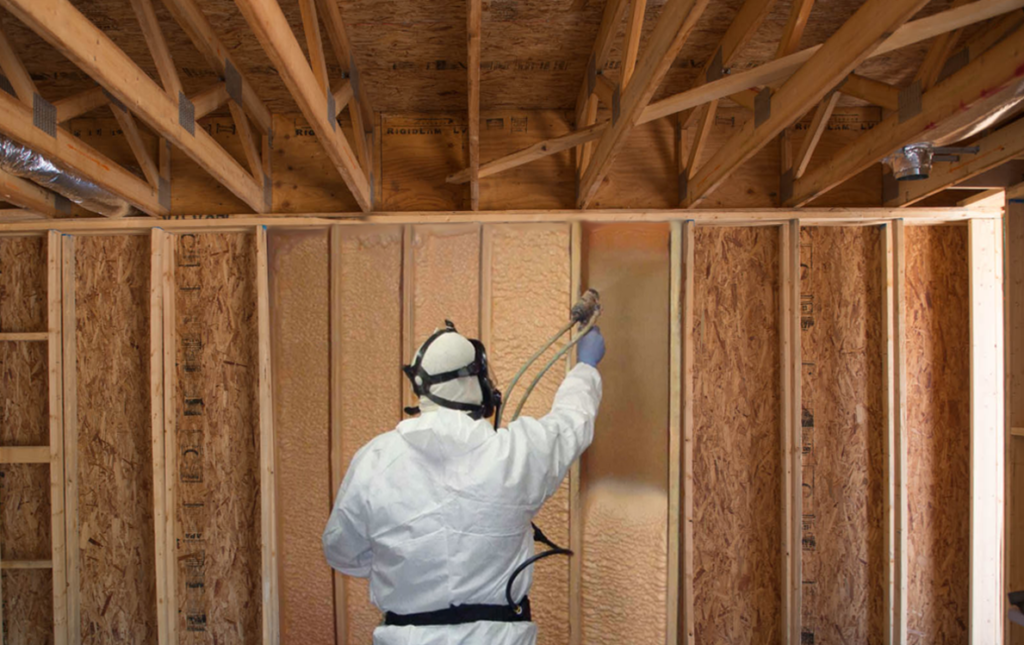When it comes to enhancing your home’s energy efficiency and comfort, closed cell spray foam insulation stands out as a top-tier solution. However, the effectiveness of this insulation largely depends on the expertise of the contractor you choose. Selecting the right closed cell spray foam insulation contractor for your project is crucial to ensure optimal results and long-term satisfaction. This comprehensive guide will walk you through the essential factors to consider, helping you make an informed decision for your insulation needs.
Understanding Closed Cell Spray Foam Insulation
Before diving into the selection process, it’s important to grasp the basics of closed cell spray foam insulation. This advanced insulation material is known for its superior air-sealing properties and high R-value per inch. When applied, it expands to fill gaps and cracks, creating an airtight barrier that significantly reduces energy loss and enhances overall comfort in your home.
Key Benefits of Closed Cell Spray Foam Insulation:
- Superior air sealing and moisture barrier
- High R-value for excellent thermal insulation
- Structural reinforcement for walls and roofs
- Long-lasting performance
- Potential energy cost savings
Factors to Consider When Choosing a Contractor
Experience and Expertise
When selecting a closed cell spray foam insulation contractor, experience should be at the top of your checklist. Look for contractors with a proven track record in the industry. They should have extensive knowledge of different insulation materials and techniques, with a focus on closed cell spray foam applications.
Questions to ask:
- How long have they been in the insulation business?
- What percentage of their work involves closed cell spray foam insulation?
- Can they provide examples of similar projects they’ve completed?
Certifications and Training
The insulation industry is constantly evolving, with new technologies and best practices emerging regularly. A reputable closed cell spray foam insulation contractor should invest in ongoing training and hold relevant certifications.
Key certifications to look for:
- Spray Polyurethane Foam Alliance (SPFA) certification
- Building Performance Institute (BPI) certification
- Manufacturer-specific training certificates
Insurance and Licensing
Ensure that the contractor you choose is fully insured and licensed to operate in your area. This protects you from liability in case of accidents or property damage during the installation process.
Verify:
- General liability insurance
- Workers’ compensation insurance
- State and local business licenses
Equipment and Materials
High-quality closed cell spray foam insulation requires specialized equipment and premium materials. Inquire about the type of equipment the contractor uses and the brand of insulation materials they prefer. Reputable contractors typically use state-of-the-art spraying equipment and source their materials from well-known manufacturers.
Project Assessment and Customization
Every insulation project is unique, and a professional closed cell spray foam insulation contractor should recognize this. They should offer a thorough assessment of your property and provide a customized solution tailored to your specific needs.
Expect:
- A detailed on-site inspection
- Discussion of your insulation goals and concerns
- A comprehensive proposal outlining the recommended approach
Safety Protocols
Closed cell spray foam insulation installation involves working with chemicals that require proper handling. A responsible contractor will have strict safety protocols in place to protect both their workers and your property.
Look for:
- Use of personal protective equipment (PPE)
- Proper ventilation procedures during and after installation
- Clear communication about safety measures and post-installation precautions
Customer Reviews and References
One of the most reliable ways to gauge a contractor’s performance is through feedback from previous clients. Look for reviews online and ask the contractor for references you can contact directly.
Red flags to watch out for:
- Consistent complaints about quality issues
- Reports of poor communication or unprofessional behavior
- Unresolved disputes or legal issues
Warranty and After-Service Support
A reputable closed cell spray foam insulation contractor should stand behind their work with a solid warranty. Additionally, they should offer after-service support to address any concerns or issues that may arise post-installation.
Inquire about:
- The duration and coverage of their workmanship warranty
- The manufacturer’s warranty on the insulation material
- Their policy for addressing post-installation concerns
Transparent Pricing and Detailed Quotes
While cost shouldn’t be the sole determining factor, it’s an important consideration. A professional contractor will provide a detailed, transparent quote that breaks down all costs associated with the project.
The quote should include:
- Material costs
- Labor costs
- Any additional services or fees
- Estimated timeline for project completion
Environmental Considerations
As sustainability becomes increasingly important, consider contractors who prioritize environmentally friendly practices. This includes using eco-friendly insulation materials and following proper disposal procedures for waste.
The Installation Process
Understanding what to expect during the installation can help you prepare and ensure a smooth process. A reputable contractor will walk you through each step of the installation.
Typical installation steps include:
- Site preparation and protection of surrounding areas
- Application of spray foam insulation
- Allowing proper curing time
- Clean-up and final inspection
Post-Installation Evaluation
After the installation is complete, the contractor should conduct a thorough evaluation to ensure the insulation meets the agreed-upon specifications and performance standards.
This may include:
- Visual inspection of the insulated areas
- Thermal imaging to detect any gaps or inconsistencies
- Air leakage testing to confirm proper sealing
Frequently Asked Questions
Q: How long does closed cell spray foam insulation installation typically take? A: The duration depends on the size of the project, but most residential installations can be completed within 1-3 days.
Q: Is it necessary to vacate the premises during installation? A: It’s recommended to leave the property during the spraying process and for a few hours afterward to allow proper ventilation.
Q: How soon can I expect to see energy savings after installation? A: Many homeowners report noticeable energy savings within the first heating or cooling season following installation.
Q: Can closed cell spray foam insulation be installed in existing homes? A: Yes, it can be installed in both new constructions and existing homes, though the approach may differ.
Q: What areas of the home benefit most from closed cell spray foam insulation? A: Attics, walls, crawl spaces, and basements are common areas that benefit significantly from this type of insulation.
Conclusion
Choosing the right closed cell spray foam insulation contractor is a crucial step in ensuring the success of your insulation project. By considering factors such as experience, certifications, safety protocols, and customer reviews, you can make an informed decision that will lead to long-term satisfaction and energy efficiency in your home.
Remember, the goal is not just to find a contractor, but to partner with a professional who understands your needs and can deliver superior results. Take your time, do your research, and don’t hesitate to ask questions throughout the process.
For those in the Milford, NJ area seeking expert closed cell spray foam insulation services, Enviro Foamtek stands out as a trusted local contractor. Their team of experienced professionals is dedicated to providing top-quality insulation solutions tailored to each client’s unique needs.
Ready to take the next step in improving your home’s energy efficiency? Contact Enviro Foamtek today at (908)-500-4717 to schedule a consultation and learn how closed cell spray foam insulation can transform your living space.







